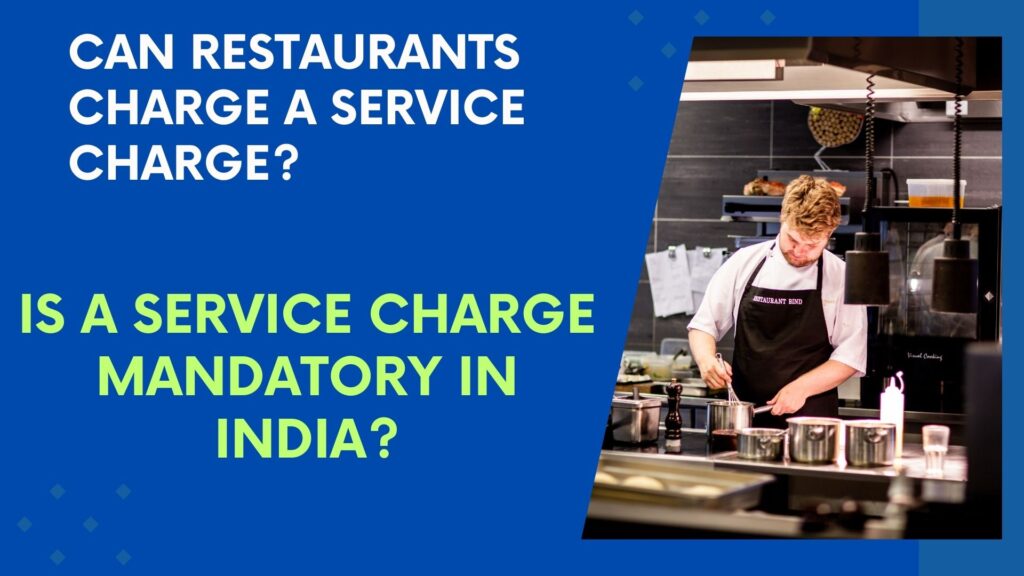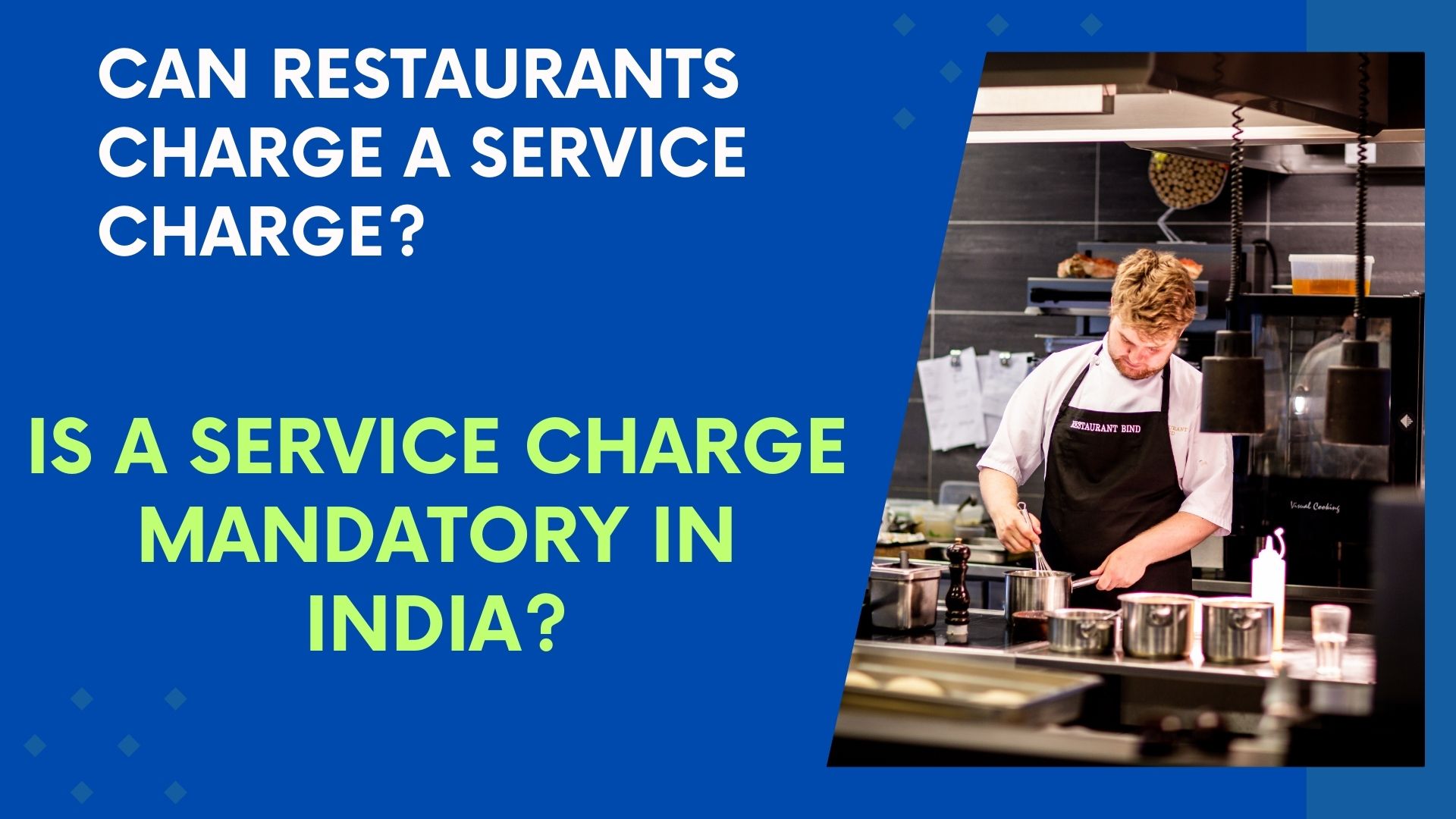Wondering whether restaurants can legally impose a service charge? The issue of service charges in Indian restaurants has stirred up debates and confusion among consumers and restaurant owners.
In this exploration, we’ll delve into the nature of service charges, the legal aspects surrounding their imposition, and what recourse consumers may have if they find a service charge on their bill.

What is a Service Charge?
At its core, a service charge is an additional amount included in customer bills by restaurants, usually around 10% of the pre-tax total food and beverages cost. It intends to cover behind-the-scenes operational costs for the establishment like staff salaries, maintenance, utilities, etc. However, the breakdown of where exactly this money goes is rarely transparent to diners.
Many customers incorrectly assume the service charge is meant as a tip or gratuity for servers. But legally, it is treated as part of the restaurant’s revenue and not given directly to staff. This leads to confusion over whether one needs to pay it or can negotiate it.
Is a Service Charge Mandatory In India?
Contrary to what some restaurants would have you believe; service charges are not automatically mandatory under Indian law.
Any additional amount added to a customer’s bill requires their explicit consent. Restaurants cannot impose such charges without first asking permission from diners. From a legal perspective, bills are not the appropriate place to surprise customers with unexpected extras they may not have agreed to pay.
Consumer rights dictate that charges must be prominently displayed on menus and communicated upfront, rather than being sprung unexpectedly later.
The Central Consumer Protection Authority (CCPA) has issued guidelines, stating that service charges cannot be added by default or automatically to the food bill. Consumers have the discretion to decide whether to pay a tip or service charge based on their experience and satisfaction with the service provided.
This underscores the importance of transparency and upfront communication about any additional charges to ensure a fair and informed transaction for consumers.
What Are Consumers’ Rights?
If charged a service charge without being asked permission, you are well within your rights to politely point this out to restaurant staff. Do not feel pressured by responses like “It’s our policy”. Reiterate that as per law, additional fees demand prior consent.
You can choose to not pay the charge and have it removed from the bill. If the restaurant refuses, it’s best to complain with local consumer forums or authorities. One such case brought widespread media attention and refunds after a customer took action against a major chain.
What to Do if a Restaurant Charges a Service Charge
If you find a service charge included in your bill and you do not wish to pay it, you can request the restaurant to remove it.
If the restaurant insists on the service charge or if you face any harassment for refusing to pay it, you can file a complaint with the National Consumer Helpline (NCH) by calling 1915 or through the NCH mobile app. Additionally, you can lodge a complaint with the Consumer Commission against such unfair practices.
In conclusion, while service charges are common in many restaurants, they are not mandatory fees, and consumers have the right to refuse to pay them. Consumers need to be informed about their rights and restaurants to adhere to the laws and guidelines set by the CCPA to ensure a fair and transparent billing process.
When is a Tip Appropriate?
While service charges are non-negotiable operational costs for restaurants, tipping is always optional. A tip or gratuity is meant as a bonus for good service over and above mandatory charges, never an obligation.
Only tip further if you genuinely feel the servers went above and beyond to enhance your dining experience. Do not feel pressured into it by misleading claims that “tips are shared with staff”. Cash tips, if given, are always appreciated but never expected.
In the end, being aware of your rights regarding service charges and tipping allows you to make informed choices as a customer. Do not hesitate to question any unexpected or non-consensual fees on your bill.
With growing awareness, restaurants too are becoming more transparent in their policies. So next time you dine out, do not be afraid to know the difference between lawful charges versus optional gratuities.


2 thoughts on “Can Restaurants Charge a Service Charge?”